Methods, types, pros and cons of system integration
- August 31
- 10 min

iPaaS (Integration Platform as a Service) is a cloud-based solution that connects various applications, data sources, and systems, creating seamless workflows across complex IT environments. Unlike traditional integration methods, iPaaS significantly simplifies the process by eliminating the need for extensive custom coding and on-premises infrastructure. It provides a user-friendly framework for building and managing integrations efficiently.
Modern businesses, especially large enterprises with over 10,000 employees, often manage hundreds of SaaS applications, resulting in isolated data silos that disrupt operations. iPaaS addresses these challenges by integrating disparate systems, allowing organizations to automate workflows and enable smooth data flow. This capability is increasingly relevant as companies grapple with application sprawl and seek ways to enhance agility and improve efficiency.
iPaaS platforms are designed with modular components that work together seamlessly to deliver reliable and efficient integrations. Here’s what they typically include:
Platforms like iPaaS often adopt an API-first approach, fostering interoperability between diverse systems. They also utilize event-driven architectures, where system triggers initiate real-time data flows, as opposed to relying on less efficient batch processes. This flexible, scalable design is particularly beneficial for businesses experiencing growth, undergoing technology transitions, or realigning strategies in dynamic markets. Hicron Software, for example, offers Cloud Application Development Services that support businesses in leveraging cloud-based technologies for such transitions.
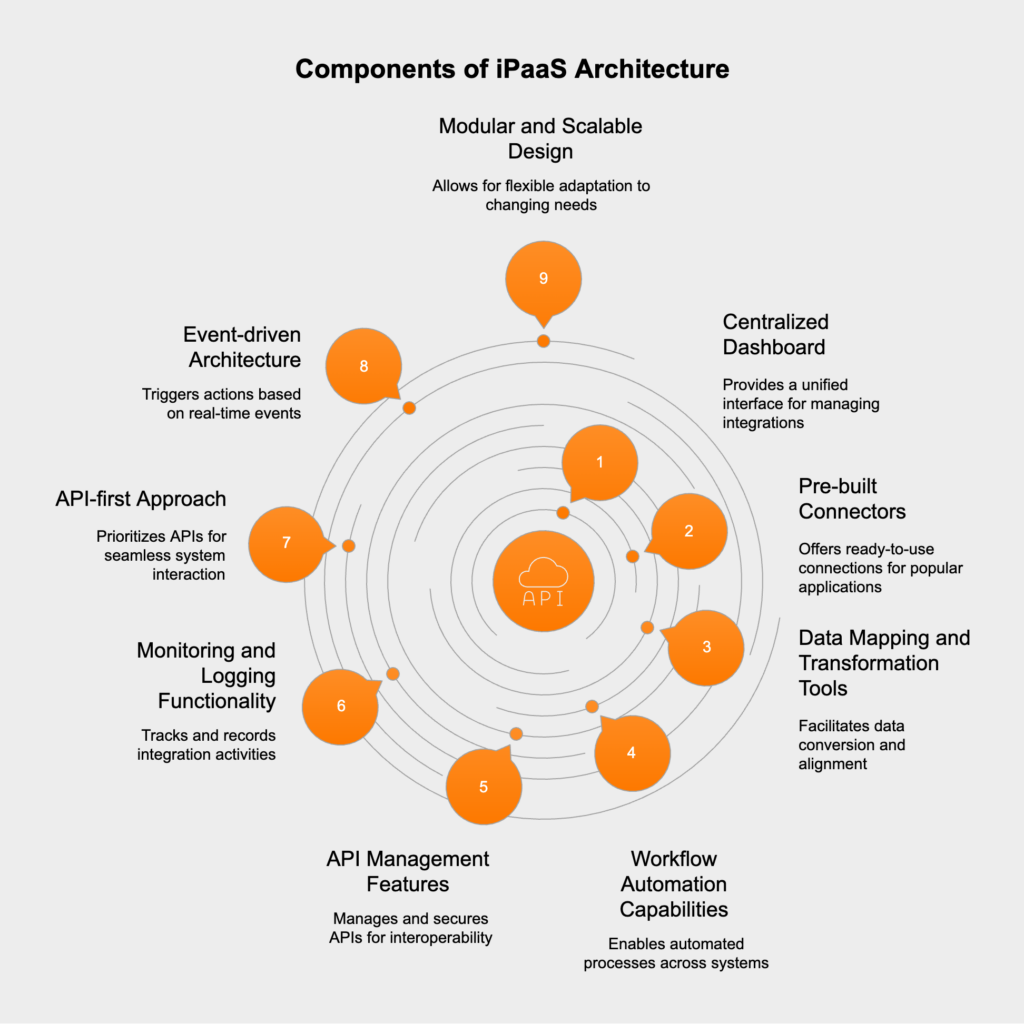
iPaaS creates an environment where users design integration workflows without the need for deep technical expertise. Here is a typical workflow:
For businesses, iPaaS removes the manual bottlenecks in critical tasks. For instance, syncing CRM and marketing tools can be automated. When a sales rep adds a new lead in the CRM, the system instantly triggers an update to the marketing software. This seamless process increases efficiency and eliminates errors.
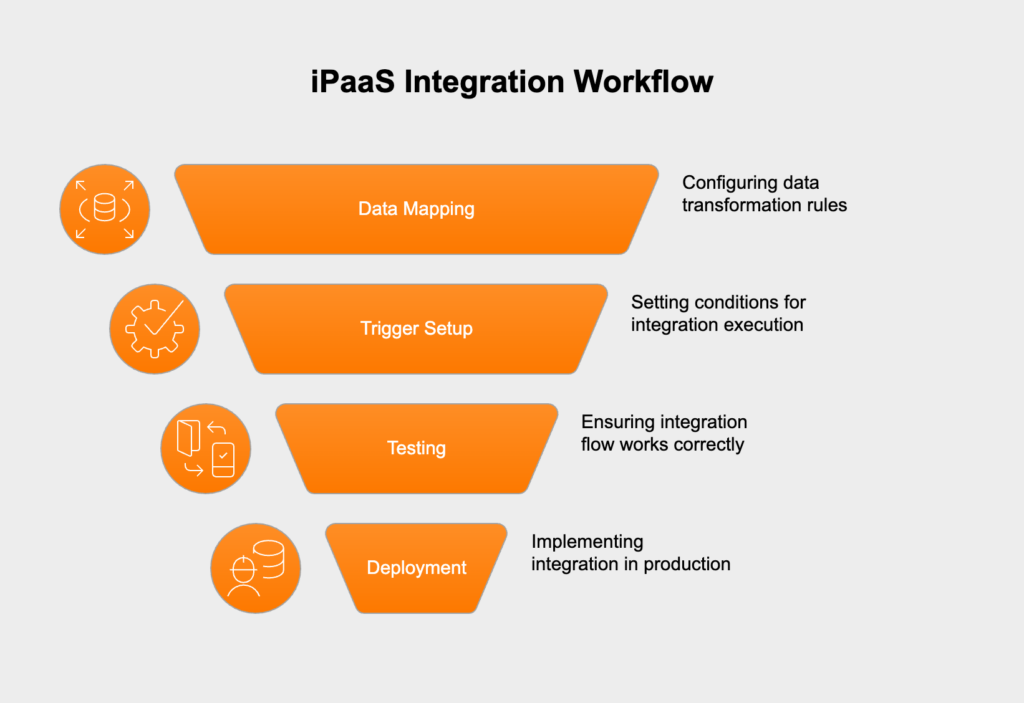
To further accelerate workflows, organizations often integrate DevOps practices. Hicron Software’s DevOps Services and Solutions can help businesses adopt continuous delivery methods to streamline these transformations even further.
Integration technologies have undergone significant changes over the decades:
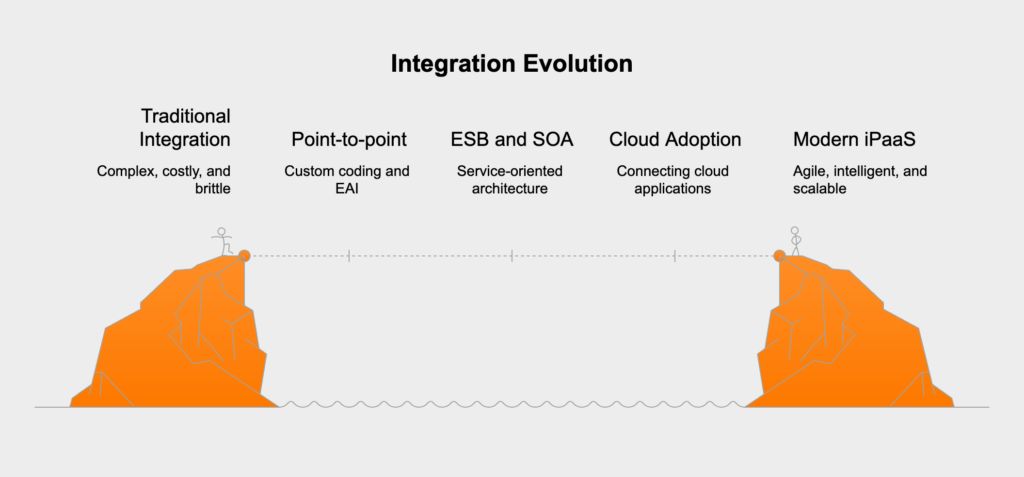
Traditional methods like ESB often demanded heavy investments in hardware and specialized resources, making them inflexible and limiting their compatibility with emerging cloud technologies. With the advent of iPaaS, these limitations have been addressed, enabling organizations to connect and scale without a cumbersome IT infrastructure. Companies transitioning from legacy systems to modern integration platforms can rely on Hicron’s Legacy Modernization Services to ensure a smooth evolution.
Modern iPaaS solutions go beyond basic integrations and provide advanced capabilities in:
The advantages of implementing iPaaS are game-changing for both medium and large enterprises:
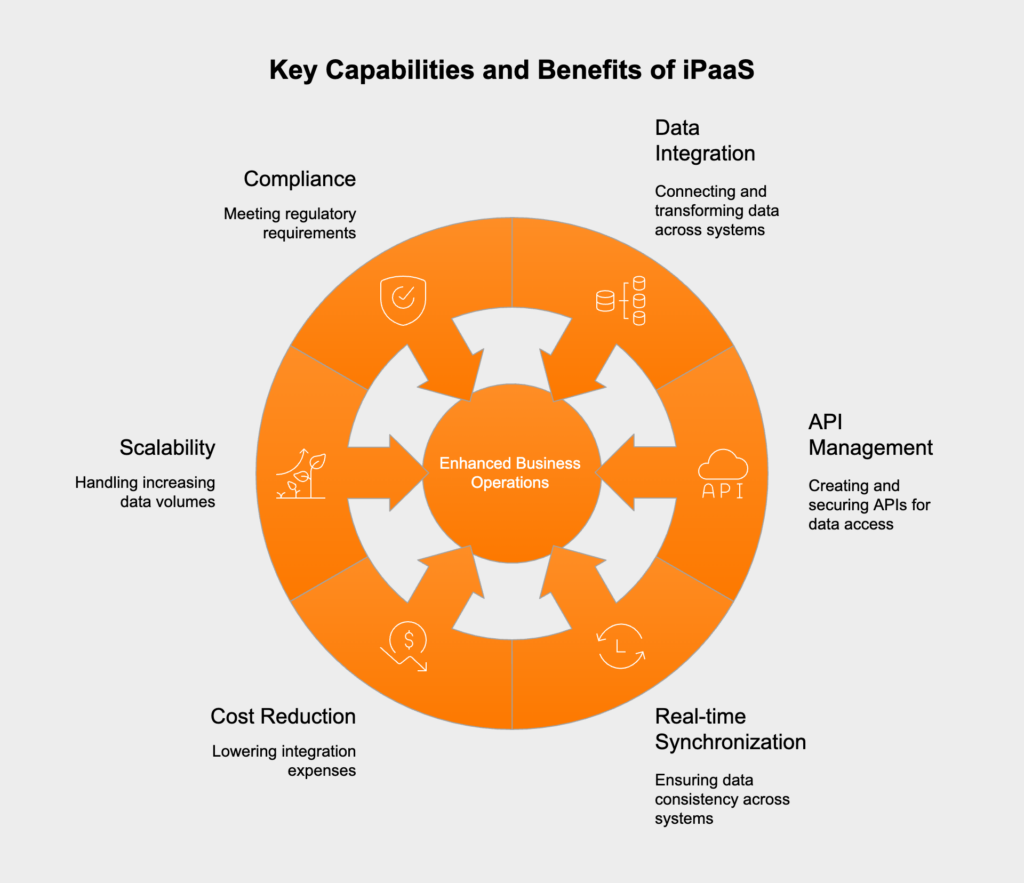
When evaluating iPaaS solutions, businesses should prioritize the following factors:
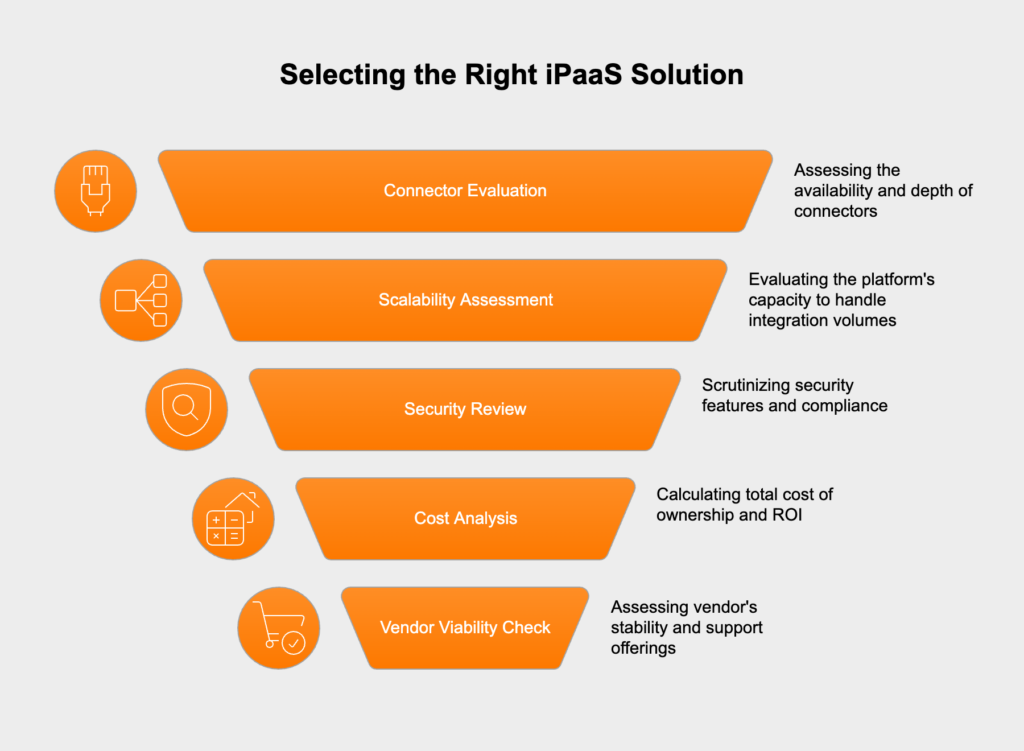
Hicron Software provides an array of resources, including detailed case studies, to help businesses understand the tangible benefits of integration. Check out their Case Studies for examples of successful implementations.
While iPaaS brings substantial advantages, businesses must address potential hurdles:
For more insights on overcoming integration challenges, visit Hicron’s blog post on Systems Integration.
The iPaaS market is rapidly evolving with innovations like AI-powered automation, multi-cloud integration, and support for technologies such as edge computing. Platforms are converging with tools like robotic process automation (RPA) and low-code solutions to deliver a more holistic approach to digital transformation.
By adopting iPaaS, companies can future-proof their integration strategies and unlock new opportunities. Platforms such as those offered by Hicron Software ensure organizations can harness the full potential of their IT systems and remain competitive as technology advances.
For businesses ready to transform their integration capabilities, partnering with an expert provider like Hicron Software can make all the difference. Whether you’re modernizing legacy systems, scaling cloud services, or enhancing DevOps practices, Hicron delivers the expertise and tools needed for success.
Want to get started? Explore Hicron Software’s offerings and begin your transformation today.
